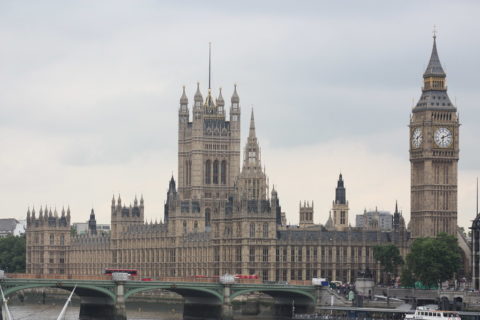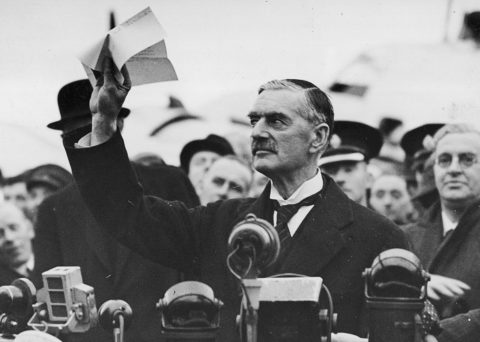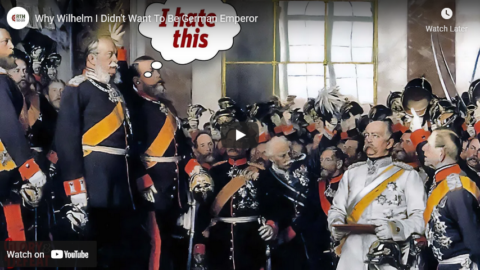While the popular conception was that the main problem was machine-gun fire making trench assaults over open ground simply impossible, the actual dynamic was more complex. In particular, it was possible to create the conditions for a successful assault on enemy forward positions – often with a neutral or favorable casualty ratio – through the use of heavy artillery barrages. The trap this created, however, was that the barrages themselves tore up the terrain and infrastructure the army would need to bring up reinforcements to secure, expand and then exploit any initial success. Defenders responded to artillery with defense-in-depth, meaning that while a well-planned assault, preceded by a barrage, might overrun the forward positions, the main battle position was already placed further back and well-prepared to retake the lost ground in counter-attacks. It was simply impossible for the attacker to bring fresh troops (and move up his artillery) over the shattered, broken ground faster than the defender could do the same over intact railroad networks. The more artillery the attacker used to get the advantage in that first attack, the worse the ground his reserves had to move over became as a result of the shelling, but one couldn’t dispense with the barrage because without it, taking that first line was impossible and so the trap was sprung.
(I should note I am using “railroad networks” as a catch-all for a lot of different kinds of communications and logistics networks. The key technologies here are railroads, regular roads (which might speed along either leg infantry, horse-mobile troops and logistics, or trucks), and telegraph lines. That last element is important: the telegraph enabled instant, secure communications in war, an extremely valuable advantage, but required actual physical wires to work. Speed of communication was essential in order for an attack to be supported, so that command could know where reserves were needed or where artillery needed to go. Radio was also an option at this point, but it was very much a new technology and importantly not secure. Transmissions could be encoded (but often weren’t) and radios were expensive, finicky high technology. Telegraphs were older and more reliable technology, but of course after a barrage the attacker would need to be stringing new wire along behind them connecting back to their own telegraph systems in order to keep communications up. A counter-attack, supported by its own barrage, was bound to cut these lines strung over no man’s land, while of course the defender’s lines in their rear remained intact.)
Bret Devereaux, “Collections: No Man’s Land, Part II: Breaking the Stalemate”, A Collection of Unmitigated Pedantry, 2021-09-24.
January 22, 2022
QotD: Breaking the trench stalemate with artillery
January 21, 2022
Boris is in trouble, threaten the BBC to take the heat off him!
In Spiked, Gareth Roberts wonders why Britons should continue to pay an annual license fee to support a media conglomerate that demonstrably hates them and their country:
Culture secretary Nadine Dorries, the most ardent of Boris Johnson stans, obligingly threw the deadest of cats on to the table at the weekend to distract from the woes of her beleaguered boss. She announced a two-year freeze on the BBC licence fee and dangled the prospect of scrapping it entirely.
Dorries must be well aware that any threat to the BBC always results in a Furies’ chorus of anger, horror and prophecies of woe, coming from precisely those people the Tory grassroots are likely to detest. And up they obligingly popped – Polly Toynbee, Nish Kumar, Gary Lineker, all present and correct. This wasn’t so much political theatre as a pantomime with stock phrases and responses. She’s behind you!
Behind all this repetitive call and response, there is something different this time around, on both sides. Dorries was noticeably blatant and direct when she tweeted that this licence-fee consultation “will be the last” (though she seemed less so in the Commons a couple of days later). And her detractors seemed more at a loss, struggling to find the counter examples of BBC excellence that used to come quickly and easily to hand. Citizen Khan creator Adil Ray tweeted a BBC promotional video asking “What has the BBC ever done for us?” that was made 36 years ago. Comedian Simon Day provided a list of great BBC comedies going back to the 1950s, which contained only one show commissioned in the last 15 years.
Canada’s CBC has a similar attitude toward Canadian culture and (ugh!) Canadians that the BBC displays, but the CBC gets direct government subsidies rather than a formal TV license required of all British TV owners. It’s quite reasonable to wonder what benefit Canadian taxpayers and British license-holders derive from all this financial support of increasingly unwatched TV and online propaganda that mocks and belittles them:
What this seems to show is that the BBC is now in a fix. In a way, the BBC hasn’t changed all that much. It is doing now what it has always done, reflecting and embodying a certain section of the middle class. When that section was sane, or at least fairly sane, that could be irritating on occasion, but we all forgave it because it had its heart in the right place. But in the past decade, the nominally “liberal” middle class has, to put it politely, gone both doolally and totalitarian.
To consume the BBC since about 2012 is to be never more than 10 minutes away from being scolded or berated, usually based on some spurious identity-politics talking point imported from the sick vortex of American academia. (On Radio 4 this happens much more frequently, about every 35 seconds.) It is unbearable, like paying £159 a year, on pain of imprisonment, to be told off by a particularly irritating polytechnic lecturer.
BBC News gets a lot of stick for this, understandably, but the Beeb’s drama, comedy and documentary output is now infested with it, too. It’s the same crushingly banal suite of opinions across everything.
Life before Blair was a grey, damp horror, a cultural wasteland of prejudice where Oswald Mosley had huge amounts of support (strangely enough, insinuating that people’s grandparents were all fascists doesn’t endear them to you). Working-class whites are bigots who can’t be trusted with basic information in case they start a race war. Fiona Bruce has kittens live on air when a doctor states the simple fact that it’s impossible to change sex. The BBC’s younger journalists have to be told that people have different opinions. If upper-class or working-class people can’t be shamed or blamed for something, the BBC just isn’t interested. It is stultifyingly bourgeois.
The BBC is often valued, and often trumpets itself, as a thing that brings the nation together. I think it has transmogrified into doing the opposite, with a superior sneer that treats Britain like something it’s found on its shoe.
Why Wilhelm I Didn’t Want To Be German Emperor
Real Time History
Published 20 Jan 2022Get the Smartest Bundle in Streaming: https://smartbundle.com/thegreatwarsb
The proclamation of the German Empire on 18 January 1871 is usually portraited as a glorious ceremony. Most people associated it with the famous paintings from Anton von Werner. But the ceremony itself was far from well organized and the soon-to-be Emperor Wilhlem I himself was not to thrilled about the whole affair.
» THANK YOU TO OUR CO-PRODUCERS
John Ozment, James Darcangelo, Jacob Carter Landt, Thomas Brendan, Kurt Gillies, Scott Deederly, John Belland, Adam Smith, Taylor Allen, Rustem Sharipov, Christoph Wolf, Simen Røste, Marcus Bondura, Ramon Rijkhoek, Theodore Patrick Shannon, Philip Schoffman, Avi Woolf,» OUR PODCAST
https://realtimehistory.net/podcast – interviews with historians and background info for the show.» LITERATURE
Arand, Tobias: 1870/71. Der Deutsch-Französische Krieg erzählt in Einzelschicksalen. Hamburg 2018Bartmann, Dominik (Hrsg.): “Ausst.-Kat. DHM‚ Anton von Werner. Geschichte in Bildern.” Berlin 1993
Bauer, Gerhard u.a. (Hrsg.): Ausst.-Kat. MHM Dresden “Krieg – Macht – Nation. Wie das deutsche Kaiserreich entstand”. Dresden 2020
Bühl-Gramer, Charlotte: Anton von Werner – “Die Proklamierung des Deutschen Kaiserreichs 1871”, in: Der Europäische Bildersaal. Europa und seine Bilder, hrsg. v. Michael Wobring und Susanne Popp. Schwalbach/Ts. 2014. S. 86-97
Gouttman, Alain: La grande défaite. 1870-1871. Paris 2015
» SOURCES
Deuerlein, Ernst: Die Gründung des Deutschen Reichs 1870/71 in Augenzeugenberichten. Gerlingen 2011 (Neuauflage)Goncourt, Edmond de: Journal des Goncourts. II.1. 1870-1871. Paris 1890
Meisner, Heinrich Otto (Hrsg.): Kaiser Friedrich III. Das Kriegstagebuch von 1870/71. Berlin, Leipzig 1926
Merkelbach, Thea (Hrsg.): Ferdinand Viebig. Der Krieg 1870/71. Aus den Erinnerungen eines preußischen Offiziers. Zell/Mosel 2021
N.N. (Hrsg.): Bismarcks Briefe an seine Gattin aus dem Kriege 1870/71. Stuttgart, Berlin 1903
Werner, Anton von: Erlebnisse und Eindrücke 1870-1890. Berlin 1913
» OUR STORE
Website: https://realtimehistory.net»CREDITS
Presented by: Jesse Alexander
Written by: Cathérine Pfauth, Prof. Dr. Tobias Arand, Jesse Alexander
Director: Toni Steller & Florian Wittig
Director of Photography: Toni Steller
Sound: Above Zero
Editing: Toni Steller
Motion Design: Philipp Appelt
Mixing, Mastering & Sound Design: http://above-zero.com
Maps: Battlefield Design
Research by: Cathérine Pfauth, Prof. Dr. Tobias Arand
Fact checking: Cathérine Pfauth, Prof. Dr. Tobias ArandChannel Design: Battlefield Design
Contains licensed material by getty images
All rights reserved – Real Time History GmbH 2022
Conservatives versus the “Blob”
Sam Ashworth-Hayes is writing here about the British Conservative party, but just swap out the names and it’s equally applicable to the Canadian equivalent, and very likely true for the rest of the western world:

“Palace of Westminster”by michaelhenley is licensed under CC BY-NC-SA 2.0
The Conservative party is trapped in a nightmare of its own making. Number 10 is rocked by scandals, support in the polls is plummeting, the Northern Ireland Protocol (Chekhov’s car bomb) waits patiently for its return to the newscycle. As with every good nightmare, there is the sense of unease that something remains undone.
That something would be “conserving”. Set aside economic policy, where the Conservatives and Labour are still just about separable — although the new interest in higher taxes, spending and regulation is rapidly eroding this gap — and judge the period on the social axis: same-sex marriage, net migration at record highs, the march of progressive ideas through academia, business and press and into government speeches. You could be forgiven for thinking that Labour won the 2010 election, and every bout subsequent.
Why is that the Conservative party governs in such a fundamentally unconservative way? Part of the issue is that the average Conservative MP is, on social issues, basically indistinguishable from the average Labour voter, while the average Labour MP is to the left even of this. The centre of gravity in Parliament is well to the left of the general population.
A second part of the answer — and a partial cause of the first — is that the infrastructure of British politics is not designed for the right. When Michael Gove and his then-Special Advisor Dominic Cummings attempted to shake up the English education system in 2014, they found themselves publicly at war with what they termed “the Blob”: an amorphous conglomerate of civil servants, academics and unions that acted to gum up change and ensure stasis in the interests of its members. Rightwards reform is received as violent revolution, whilst the constant leftwards drift goes unremarked and unchallenged.
When Cummings made his way to Number 10, so did the concept of the Blob, expanded to include the BBC, various quangos, much of Whitehall and what is sometimes called “civil society”. The example of hate crime policy is illustrative of the general idea. The concept is not dissimilar to Curtis Yarvin’s “Cathedral”, or the Trumpian “deep state”. Critics of such accusations point out, not unreasonably, that coordinating so many constituent parts would be almost impossible — but this misses the point entirely. The purpose of a system is what it does, and individual elements responding to an ecosystem of incentives that produce given results can act in a remarkably coordinated way, when those incentives point in the same direction.
A Rare Navy Stopgap: the CLLE MkI Naval Enfield
Forgotten Weapons
Published 6 Sep 2021http://www.patreon.com/ForgottenWeapons
https://www.floatplane.com/channel/Fo…
Cool Forgotten Weapons merch! http://shop.forgottenweapons.com
The British Royal Navy tended to accumulate some of the obsolescent patterns of Enfield rifles around the turn of the 19th century, as the Army had higher priority for the new types of rifle. This resulted in a rather odd and poorly-documented pattern, the Charger-Loading Lee Enfield (CLLE) MkI Naval.
Produced around 1910-1912, these guns began as original production Long Lee (or Metford) rifles. In 1910, the new MkVII high velocity Spitzer ammunition was adopted, and it was largely issued on charger clips for use in the new SMLE rifles. The Royal Navy decided that it wanted to be able to use this ammunition, and so it converted some (exact numbers are unclear) of the old Long Lees with a mishmash of updates.
The rear sights were recalibrated for MkVII ammunition, but not changed in style. So, no windage adjustment was possible on either the front or rear.
A charger bridge was added, including a channel cut to allow a sight picture on the old-style sights. This also involved removing the early pattern dust covers on the bolts.
The resulting guns were marked “HV” for “high velocity” in front of their rear sights. The right side of the receiver socket retained the original production markings, and “CLLE MkI” was added to the left side of the sockets.
Contact:
Forgotten Weapons
6281 N. Oracle 36270
Tucson, AZ 85740
January 20, 2022
“The new music market is actually shrinking. All the growth in the market is coming from old songs”
As a certified (certifiable?) old pharte, I have to admit I pretty much stopped listening to “new” music on the radio the year my son was born, so I certainly listen to a lot of music from my younger years, but apparently even young people today are also more inclined to listen to music from before they were born:

“Framed Vinyl Album Art: America ‘Homecoming’; Nick Gilder (Studio Copy of Singles From ‘City Lights’ Chosen for AOR); Climax Blues Band ‘FM Live’)” by JoeInSouthernCA is licensed under CC BY-ND 2.0
I had a hunch that old songs were taking over music streaming platforms — but even I was shocked when I saw the most recent numbers. According to MRC Data, old songs now represent 70% of the US music market.
Those who make a living from new music — especially that endangered species known as the working musician — have to look on these figures with fear and trembling.
But the news gets worse.
The new music market is actually shrinking. All the growth in the market is coming from old songs.
Just consider these facts: the 200 most popular tracks now account for less than 5% of total streams. It was twice that rate just three years ago. And the mix of songs actually purchased by consumers is even more tilted to older music — the current list of most downloaded tracks on iTunes is filled with the names of bands from the last century, such as Creedence Clearwater and The Police.
I saw it myself last week at a retail store, where the youngster at the cash register was singing along with Sting on “Message in a Bottle” (a hit from 1979) as it blasted on the radio. A few days earlier, I had a similar experience at a local diner, where the entire staff was under thirty but every song more than forty years old. I asked my server: “Why are you playing this old music?” She looked at me in surprise before answering: “Oh, I like these songs.”
The reasons are complex — more than just the appeal of old tunes — but the end result is unmistakable: Never before in history have new tracks attained hit status while generating so little cultural impact. In fact, the audience seems to be embracing en masse the hits of decades past. Success was always short-lived in the music business, but now it hardly makes a ripple on the attention spans of the mass market.
H/T to Althouse for the link.
David Starkey — The Churchills episode 2
Whitehall Moll History Clips
Published 11 Feb 2019Dr David Starkey reveals how Winston Churchill’s biography of his ancestor John Churchill marked out Winston as the only politician who truly understood war — just as WWII loomed.
“McLuhan came to be regarded by the Baby Boomer generation as a guru and prophet; a visionary who had discovered something profound, not merely about the media, but about life and the universe”
In Quillette, Graham Majin looks at the life and works of Marshall McLuhan:

Marshall McLuhan, 1945.
Library and Archives Canada reference number PA-172791 via Wikimedia Commons.
The media ecosystem of the early 21st century is marked by a collapse of trust in journalism. How did we get here? As we look back, like a detective searching for clues, one moment stands out as significant; the publication on March 1st, 1962, of The Gutenberg Galaxy, written by a then-obscure Canadian academic named Marshall McLuhan. This book set in motion a line of falling dominoes, the consequences of which continue to affect us profoundly today.
McLuhan came to be regarded by the Baby Boomer generation as a guru and prophet; a visionary who had discovered something profound, not merely about the media, but about life and the universe. During the 1960s, he became a major celebrity, especially in the US. He featured on the cover of Newsweek magazine, was frequently interviewed on TV, and made a cameo appearance in Woody Allen’s 1977 movie Annie Hall. There was even a prog rock band named in his honor. The American media historian Aniko Bodroghkozy writes that “no other figure who was not of the movement itself received so much positive notice in the alternative newspapers that served dissident youth communities.” In 1965, the celebrity journalist Tom Wolfe asked breathlessly, “Suppose he is what he sounds like, the most important thinker since Newton, Darwin, Freud, Einstein, Pavlov?” Wolfe described McLuhan as an almost Christ-like figure:
A lot of McLuhanites have started speaking of him as a prophet. It is only partly his visions of the future. It is more his extraordinary attitude, his demeanor, his qualities of monomania, of mission. He doesn’t debate other scholars, much less TV executives. He is not competing for status; he is alone on a vast unseen terrain, the walker through walls, the X-ray eye.
Writing in 1967, John Quirk agreed that McLuhan was a “savant and prophet” and explained that, “McLuhanites hold that the new technologies will lend men the awareness and instruments necessary to solve contemporary problems and inaugurate a bright new era.” McLuhan was a master of the catchy one-liner and the original source of Timothy Leary’s famous counterculture catchphrase, “Turn on, tune in, drop out.”
McLuhan’s division of media into two types was certainly influential although that influence wasn’t particularly useful:
In The Gutenberg Galaxy, McLuhan observed that the decline of Catholicism, the rise of Protestantism, and the drift towards secularism all coincided with the development of printing. He hypothesized that the invention of printing had produced the European Enlightenment and Victorian liberal democracy. It was not what was printed, but printing itself that was responsible. McLuhan classified all media into two types: “hot” and “cool”. Printed books and newspapers, he suggested, were “hot” because they were bursting with information. Pre-Renaissance forms of communication, on the other hand, like the spoken Catholic Mass, were “cool”. This was because the Mass was spoken in Latin and hence contained little or no information that ordinary people could understand. Handwritten books were also categorized as “cool”.
Baby Boomers were quite receptive to McLuhan’s message, as it told them very much the sort of thing they wanted to hear:
He had produced a Boomer-friendly, sanitized version of his thesis in which magic and fantasy replaced religion. He also took care to flatter his Boomer audience by telling them that they were uniquely in tune with a deeper reality their parents could not see or understand. “We of the TV age,” he wrote, “are cool. The waltz was a hot, fast mechanical dance suited to the industrial time in its moods of pomp and circumstance. In contrast, the Twist is a cool, involved and chatty form of improvised gesture.”
McLuhan told the Boomers that they might appear irrational to their parents, but this was simply because the old generation was raised on obsolete “hot” media. As a result, he said, they had lost touch with their emotional side and become unnaturally rational and impartial: “Phonetic culture endows men with the means of repressing their feelings and emotions when engaged in action. To act without reacting, without involvement, is the peculiar advantage of Western literate man.”
McLuhan was a key influence on the Boomers, but his ideas failed when logically analyzed:
Trying to deconstruct McLuhan’s arguments reveals glaring absurdities. For example, it is self-defeating to claim that the content of a message is unimportant. On the contrary, all messages must convey information which corresponds with, or claims to correspond with, some state of affairs in the real world if they are to be useful. A news article without news, a weather forecast that does not mention the weather, or a traffic report lacking information about traffic might all be deliciously McLuhanesque, but they are not helpful. Even the Bible, revered by McLuhan, would be meaningless if it were merely a book of random words and blank pages. As Finklestein summarized, McLuhan’s argument is “absurd, when analyzed.”
McLuhan might well be the patron saint of fake news.
Discovery ’70 — “A Tale of Two Forts” — Fort Niagara & Fort George, War of 1812
PeriscopeFilm
Published 19 Oct 2021Want to support this channel and help us preserve old films? Visit https://www.patreon.com/PeriscopeFilm
Visit our website www.PeriscopeFilm.comThis episode of the television show Discovery ’70 is hosted by Virginia Gibson. “A Tale of Two Forts” focuses on two important historic forts from the War of 1812, Fort Niagara and Fort George, which are located between the United States and Canada on the Niagara River. The episode contains re-enactments of the activities at the forts, a bitter battle for control of the Niagara River valley, and the Battle of Queenston Heights — the first major battle of the war. Fort Niagara was an important American post near the outlet of the Niagara River into Lake Ontario. During the early days of the war, it launched artillery fire against the British at Fort George on the other side of the river. On 27 May 1813, the Americans won the Battle of Fort George, and held the enemy fortification. Later that same year, after the burning of Newark and with American forces in disarray, the British advanced on Fort George, forcing the American garrison to abandon it. The artillery could not be withdrawn from Fort George and was thrown into the ditch surrounding the fort. The American garrison at Fort Niagara was then taken by surprise in a night assault by a select force of British regular infantry. Fort Niagara remained in British possession until the end of the war, until they relinquished it under the terms of the Treaty of Ghent. The War of 1812 was won by the British, and was the last military conflict between the two countries.
In 1812, the U.S. Army’s Fort Niagara stood near the British Army’s Fort George in Canada. The introduction of the film begins with a re-enactment of U.S. soldiers in Revolutionary era dress advancing by canoe on the river at :12. British Redcoat soldiers and cannons at Fort George. Main title. At 1:16 the film shows small vessels near Lake Ontario, which was Indian land in 1812. At 1:27 a cannon. At 1:43 the American Fort Niagara, made of stone and brick. At 2:17 the French “stone house” is shown. This was actually a disguised fort with cannon positions. Defenses and the outside of the fort at 2:52. At 4:08, to show the seizure of the fort by the British, a Redcoat is shown triumphantly walking past the fort. The fort served as a refuge for English loyalists at 4:55. At 5:57 an American drummer, and Continental type soldiers. At 6:59 a woman and her daughter go to the well to fetch water. A type of oven is shown that heated cannonballs, so that they could not be re-used by the enemy. At 8:07 an overhead view of Fort George. Houses, log stockades, ladders, saws. British soldiers on parade and marching. At 11:20 British soldiers firing, and the Union Jack being raised. At 12:20 English and American officers dine together. The generals of both Fort George and Fort Niagara are shown in the re-enactment — Major-General Sir Isaac Brock for the British and American General Stephen Van Rensselaer. A Redcoat rides a horse toward the house where the dinner takes place, bearing news that the U.S. has declared war on the British. U.S. soldiers canoe past the island at 14:34, attempting to establish a foothold on the Canadian side of the Niagara River. The American assault on October 13, known as the Battle of Queenston Heights — the first major battle in the War of 1812 — takes place. American soldiers attempting plant “Old Glory” at 15:58. At 16:48 at Fort George, General Brock writes dispatches requesting reinforcements, then leads his men into battle as part of the counter attack. General Brock is fatally hit by sniper fire 17:51. The forts firing cannons at each other 18:13. At 19:17 British soldiers firing at American soldiers, the British prevail. At 19:49 the Americans retreating in defeat. At 20:07 The British salute their fallen general. The Americans salute Brock as well. The film ends at 21:04.
We encourage viewers to add comments and, especially, to provide additional information about our videos by adding a comment! See something interesting? Tell people what it is and what they can see by writing something for example: “01:00:12:00 — President Roosevelt is seen meeting with Winston Churchill at the Quebec Conference.”
This film is part of the Periscope Film LLC archive, one of the largest historic military, transportation, and aviation stock footage collections in the USA. Entirely film backed, this material is available for licensing in 24p HD, 2k and 4k. For more information visit http://www.PeriscopeFilm.com
QotD: The Boot-On-Your-Neck parties
As my regular readers know, as far as I’m concerned, they represent two not-terribly-different wings of exactly the same political party: the Boot on Your Neck Party. If it isn’t George Bush with his boot on your neck after 2008 — if George isn’t there any more to steal half of everything you make, and enslave your kids for military and other purposes, and dog your steps, and lowjack your phone, and read your mail, and ransack your medical records, and censor your radio and television, and search your home, and probe your bunghole — it’ll be Hillary.
Or somebody just like her.
Neither of these phony antagonists will offer not to do any of those evil things. Instead, they’re competing on the basis of who can deprive us all of more of our rights faster. Standing on the shoulders of would-be tyrants like Lincoln, Wilson, Roosevelt, and Johnson, Bill Clinton did his damnable best to make the state stronger and more unaccountable to the people. George Bush stands on Clinton’s shoulders today.
Any “progress” made by Republicans in converting America into a dictatorship will be absorbed by the next Democratic administration before they go on to make “progress” of their own. The “no-fly” list will become the “no-ride” list, then the “no-drive” list, then the “no-walk” list, and finally the “no-breathe” list. Why anybody should think that it matters which wing of the Boot on Your Neck Party is doing it to us at any given moment is — and always has been — beyond me.
L. Neil Smith, “Time for a Boynout”, Libertarian Enterprise, 2006-02-19.
January 19, 2022
Triumph by Sea, Tragedy by Land – Supplying Guadalcanal – WW2 Special
World War Two
Published 18 Jan 2021Tens of thousands of Japanese soldiers were fighting over the jungles and beaches of Guadalcanal. To supply them with food, ammunition and medicine, the Japanese Navy had to resort to a series of daring supply runs — nicknamed the “Tokyo Express”. In the face of overwhelming American air superiority, the Tokyo Express had to find a tactic to overcome their enemy’s advantage, or it would doom its soldiers stranded on the island.
(more…)
Neville Chamberlain, the “great appeaser”
Alexander Larman considers an attempt to paint British Prime Minister Neville Chamberlain in a much more positive light than his popular image after appeasement failed:

Prime Minister Neville Chamberlain at Heston Aerodrome, holding up a copy of the Anglo-German Declaration he had negotiated with Adolf Hitler, 30 September, 1938.
Narodowe Archiwum Cyfrowe via Wikimedia Commons.
On 30 September 1938, the Prime Minister Neville Chamberlain waved a piece of paper in his hand and declared “My good friends, for the second time in our history, a British Prime Minister has returned from Germany bringing peace with honour. I believe it is peace for our time.” He was, of course, incorrect. Less than a year later, Britain was at war with Germany, and the piece of paper was rendered meaningless.
Posterity has been hard on Chamberlain, regarding him as one of the least effective British premiers, and he has been entirely overshadowed by his more charismatic and successful replacement, Winston Churchill. Yet the bestselling author Robert Harris took a more sympathetic view of Chamberlain, and suggested in his 2017 novel Munich that, far from the Prime Minister being a hapless blunderer, he was in fact a canny tactician who bought his country an invaluable extra year to prepare for the coming conflict. This novel has now been filmed by Netflix, and has attracted particular attention for Jeremy Irons’ sympathetic and warm portrayal of Chamberlain.
Harris has even suggested that “I could perhaps show him as a tragic hero rather than merely the gullible old fool of popular myth … it is a mark of maturity to be able to hold two competing views in one’s head at the same time: that Churchill was vital to the defeat of Germany, and so, in a different way, was Neville Chamberlain.” Does he have a point, or is this just the canny spin of a novelist who has found a new and profitable angle to bring a well-worn story to life?
For my forthcoming book The Windsors at War, dealing with the royals in WWII and their relationships with the politicians of the day, I researched many letters and documents written by Chamberlain, members of the Royal Family and those around him in Downing Street. Several things came to light. There was residual antipathy between Chamberlain, who was an instinctive appeaser, and Churchill, who was not, and the Prime Minister privately derided the other politician as “a bandit” and “a pirate”. He also despised Attlee’s Labour party, calling them experts in “sob-stuff” sentimentality. He can undeniably be accused of high-handedness and complacency. Yet the charge of incompetence is a more deadly one.
Chamberlain himself came from a distinguished political family. His father Joseph was a ruthless Liberal parliamentarian who was said to have originated the phrase “you cannot teach old dogs new tricks”, and his elder brother Austen, one-time Chancellor of the Exchequer and leader of the Conservative Party, demonstrated a confidence in his intellectual abilities that his sibling did his best to emulate. He was not universally popular with his own side – the Conservative MP and diarist Harold Nicolson called him “a bourgeois shit” – but he generally had the support of his party in pursuing his policy of appeasement towards Hitler and Germany, believing – correctly – that Britain could not win the conflict outright.
Drøbak Sound, 1940 – “Either I will be Decorated or Court Martialed. Fire!”
The Operations Room
Published 22 May 2021Peering through the darkness, Colonel Birger Eriksen spots a dark and menacing shape on the water. He can’t tell if its a friendly or enemy warship, but there’s no time to find out for sure. The dark and silent ship threatens his beloved Oslo. He must make his decision whether or not to fire. The German invasion of Norway has begun.
My “Group Captain” tier Patreons vote on my next video subject. If you’d like to have your say on my next video, please check out my Patreon at the link below:
https://www.patreon.com/TheOperations…https://twitter.com/The_Ops_Room
Special thanks to my Patreons: Abusemtex, Alexander K Leach, András Csányi, Bill Luster, Bryant Miano, Chris Faehl, Cody, dan, Dave Lombard, Dullis, e 141, Eric M, Flavio Ribeiro, Harmen, imfromthe808, Jeff Phillips, John Smaha, JONATHAN Vallett, Kole Pulley, libor riska, Luke Graham, Michael Choi, Miyama1018, omega21, PS, Richard Bejtlich, Shay Kneupper, Stephen James, wilbs43, Yurnero, Zachery Plaice, Aaron, Aaron Weisenburger, Alex Bell, Alex Pickworth, Andrew Ringquist, Axel Essbaum, Ben Harazim, Bodo Nuber, Brett VanBuren, Caleb DeArmas, Casual Observer, Christopher Cardona, Connor Kunihiro, Damien Dec, Darius Cosby, Dayan, Douglas, Ekstasis, Erick Velez, Escipio Sumski, Fredrick Wilson Nordby. Gaute, Geir Morten Soerensen, Graeme McEvoy, Gunship Sequel, Hanne Kortegaard Støchkel, Harrison A Tamke, Hunter Thornsberry, Innominate, Jack Baylor, Jack Mermod, Jack Parkin, Jackie Carson, Jason Wemyss, Jeffery Barnes, Jerry Xiao, Jessica Tiger, Jingold, Joe Robinson, John Harrison Herndon, John Walters, John Hesketh, Jordan Hedges, Joseph Sullivan, Justin Smith, Kurt Fox, Leo Maltoni, Luffylink, Luke Graham, LVE, Manfred Breuner, Michael J Jacobsen, Mike Thompson, Nick, Olufemi Adediwura, piranha45, Reese Spector, Richard Woodard, Rick Y-Bobby, Riley Matthews, Robby Gottesman, Robert Evans, Roderick Russell, Rory Weden, Ryan March, Siddharth Ahuwalia, Squerdle, The Man They Call Asher, Thomas Burton, Timothy Bucklin, UnicornStampede, Walter Kim, Warren Rudkin, Weston Hullander, Will Merrill, William Lydon, zintho9, Aaron Roberts, Alex Mackinnon, bascommander, Chris Roybal, Dave, Dylan Gilstein, e, Henry Buckley, Jack Lazarus, James Rosengrove, Johan West, john boland, Keven Guimaraes, Kristian Klibo, Marcelo Avila, Mark L., Mason, Matt, Matt Gonzales, Matthew Pulitano, Miguel, No Gods No Masters, Nicole Johnson, Peter S., The Rainmaker, Tommy Gates, Shikhir, Wolfgang Seitz, Wyatt Flynn Wilgus, Kelson Ball
QotD: Pandemics
Governments thrive on infectious diseases, because only governments, or institutions that are very hard to distinguish from governments, can contain them. Which is why I always suspect that such “pandemics” (pandemic seems now to be the regular word for an “epidemic”) tend to be somewhat exaggerated. But if I were a politician, I would never dare to say such a thing.
Brian Micklethwait, “Not a good time to be a chicken”, Samizdata, 2006-02-21.








